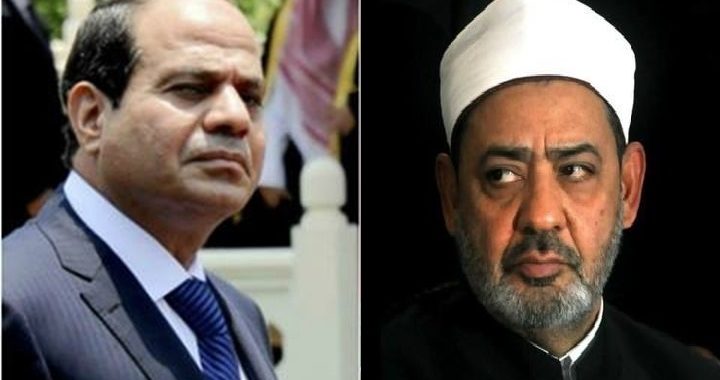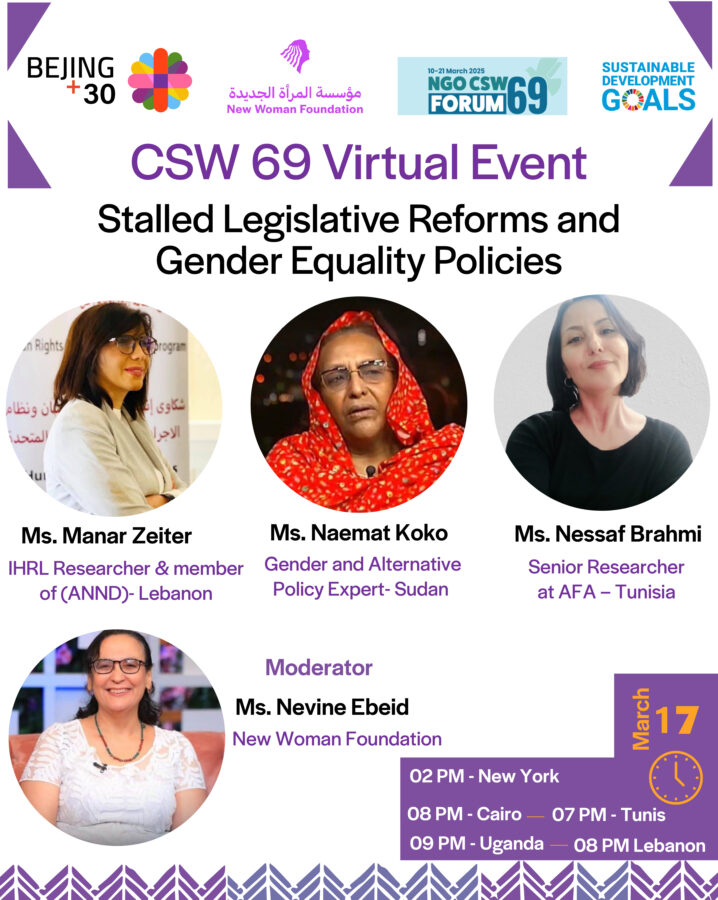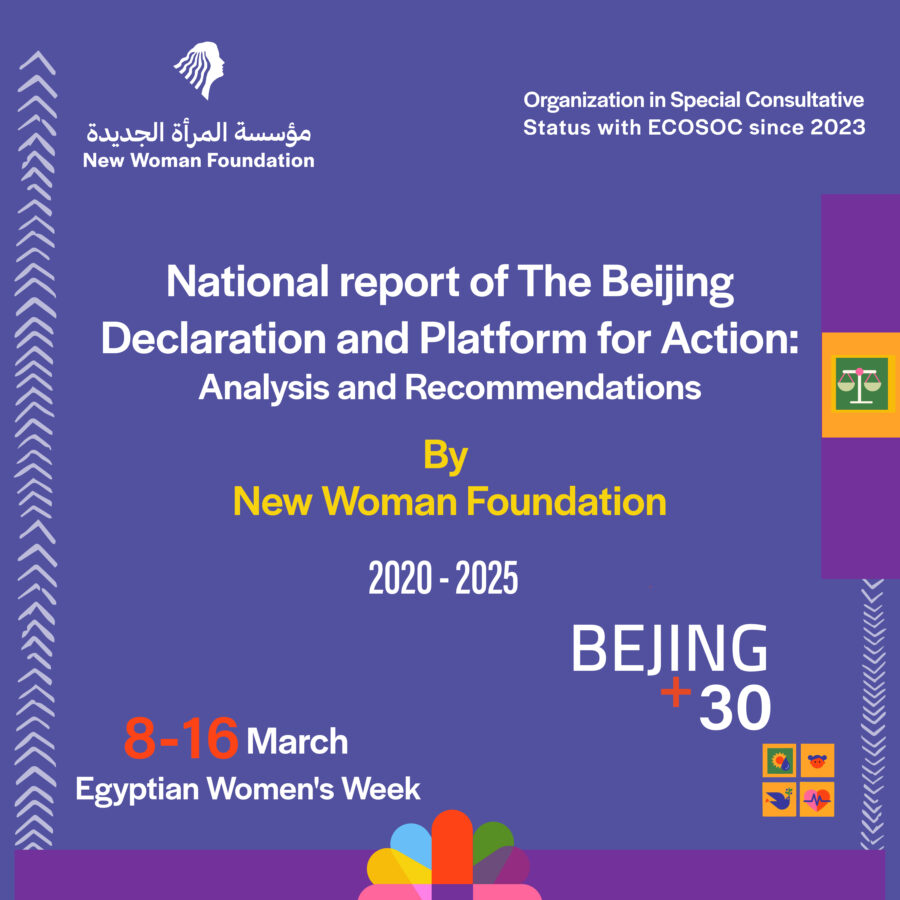- Contact Us
- 0020233382706
- nwrc@nwrcegypt.org
Tensions arise between Al-Azhar and presidency over verbal divorce debate

Nadia Abdou Becomes Egypt’s First Ever Female Governor
February 20, 2017
Cairo – Finding Women at Work Should Not be this Hard
February 27, 2017Recent calls by President Abdel Fattah al-Sisi to reduce Egypt’s escalating divorce rate by ending verbal divorce have been met with resistance from Al-Azhar, feeding into an ongoing standoff between the state and the country’s largest Islamic institution.
During a speech at the Police Academy on January 24, Sisi referenced a 2015 report published by the Central Authority for Public Mobilization and Statistics (CAPMAS), highlighting Egypt’s burgeoning divorce rates. 2015 saw a 10.8 percent increase in the number of divorces, reaching almost 200,000 cases compared with approximately 180,000 the previous year. Calling divorce a threat to social stability, Sisi proposed enacting a law to end the practice of verbal divorce.
When it comes to issues of marriage and divorce, Egypt follows Islamic Sharia law, which is primarily weighted in favor of men. Women must stipulate in the marriage contract that they are able to divorce, otherwise the case must go through a court entailing a lengthy judicial process.
Verbal divorce refers to undocumented divorce, which is often used by men in an attempt to pressure women into giving up alimony rights. Sisi’s plan to eliminate verbal divorce is predicated on the notion that forcing men to divorce their wives through the court would encourage both sides to treat divorce more seriously, reducing divorce rates.
Addressing Al-Azhar’s Grand Sheikh Ahmed al-Tayyeb, the president asked, “Can’t we issue a law saying that no divorce should take place, except before a court?” He suggested that this would encourage people to think more about their decisions, and prevent divorce from becoming nothing more than a phrase said by a man to a woman. “What do you think, Grand Sheikh? You are giving me a hard time,” he asked Tayyeb in jest.
However his request elicited a serious response from Al-Azhar, as indicated by the statement issued by the Council of Senior Scholars on Sunday. The council, which is the institution’s highest authority made up of 22 clerics, unanimously rejected Sisi’s call. The statement highlights that verbal divorce is Sharia-compliant, posing that changing Egypt’s divorce laws is not the right approach to countering rising divorce rates.
The statement instead suggests that the government pass legislation obliging men to document divorce by enforcing legal penalties against those who would decline to record the process, as a means to safeguard women’s financial and legal rights.
“Rising divorce rates will not be countered by ending verbal divorce, especially as the cases included in the divorce statistics are already documented,” the statement reads.
Al-Azhar held the state responsible for lowering divorce rates, proposing solutions to address broader social issues, including better education, countering drug use and good guidance through the media, among others.
While Al-Azhar staunchly opposed the removal of verbal divorce, both the Endowments Ministry and Dar al-Ifta showed flexibility in responding to Sisi’s call. Both institutions announced a number of “training programs” for couples intending to marry revolving around conflict resolution, in an attempt to reduce rising divorce rates.
In an interview aired on Egyptian state television, Egypt’s Grand Mufti Shawky Allam said that “Sisi’s fears concerning verbal divorce are justified.”
Al-Azhar’s opposition could reflect rising tensions with Egypt’s leadership. The religious institution has been the administration’s strongest ally since the ouster of former President Mohamed Morsi in 2013. Tayyeb was at the forefront of the delegation of state representatives present when Sisi announced the ouster.
As part of the ongoing war on terrorism, the president has repeatedly advocated for countering extremism by “renewing religious discourse,” attempting to coopt the country’s formal religious institutions in the process, with Al-Azhar at the forefront. In 2015, Sisi called on Al-Azhar and the Endowments Ministry to lead a process to “revolutionize” religious discourse to confront extremist ideologies, making direct reference to the outlawed Muslim Brotherhood organization.
“This renewal of religious discourse must be conscious and preserve the values of true Islam, eliminating sectarian polarization and addressing extremism and militancy,” Sisi said in January 2015. A few months after this speech, Sisi said he was unhappy with the steps taken in this regard, saying efforts had not risen up to the challenge. He said that while preachers were doing their best, “we need to move quickly and efficiently because the effects of terrorism are becoming more evident all over the world.”
One year later, the Endowments Ministry implemented what it called a major step toward religious renewal, deciding to enforce a unified Friday sermon to be distributed to imams nationwide. Endowments Minister Mokhtar Gomaa said that the decision to unify sermon content was not politically motivated, but aimed to ensure a spiritually enlightened and methodological delivery. Opposed by imams, the move was viewed as a ministerial attempt to further strengthen control over religious discourse, rather than “renewing” it.
The decision to unify sermons revealed increasing discord between Al-Azhar and the state as Al-Azhar officials rejected the move, affirming that their clerics working in ministry-controlled mosques would not commit to the pre-written sermons. They added that Al-Azhar clerics are enlightened and qualified enough to preach during sermons in a way that better responds to societal needs.
According to researcher in religious freedoms and institutions at the Egyptian Initiative for Personal Rights (EIPR), Amr Ezzat, the way Sisi phrased his request to Tayyeb during his recent January speech could have been seen as insulting to Al-Azhar’s prestige.
“Sisi spoke to Tayyeb as if Al-Azhar offers services at the request of the president,” he says, highlighting that Endowments Minister Gomaa has been serving this purpose well, as reflected by the decision to implement dictated sermons.
“At the end of the day, Gomaa holds an executive position, so it is natural that he serves the state’s interests. However, Al-Azhar views Gomaa’s rush to serve the state as an insult to the country’s religious institution, rhetoric that Al-Azhar obviously disagrees with,” he says.
“This is why Tayyeb did not release Sunday’s statement under his name only, resorting to the Council of Senior Scholars to affirm his legitimacy,” Ezzat says. He says that the power play between the Endowments Ministry and Al-Azhar revolves around which should be in charge of controlling the country’s religious sphere.
Ezzat states that Al-Azhar is heavily dependent on its semi-independent position, highlighting that the Council of Senior Scholars is no longer appointed by the president but by internal elections. According to a 2012 amendment to the law organizing Al-Azhar’s affairs, the council elects grand sheikh of Al-Azhar, who holds the position for life. The amendment was approved by the Supreme Council of the Armed Forces, a few days before a Parliament controlled by the Muslim Brotherhood convened. The move was seen as a way to circumvent any attempts by the Brotherhood to control Al-Azhar.
However according to Abdel Ghany Hendy, member of the Supreme Council of Islamic Affairs, neither the government nor Al-Azhar have the true will to change religious discourse, as both sides lack the requisite “creativity and vision.”
“This lack of will leaves the door wide open for political rifts,” he says, adding “This affects preaching directly. How can an imam ask people to commit to a religious path while people know very well that the imam’s bosses are all mired in personal gains and power conflicts?”



